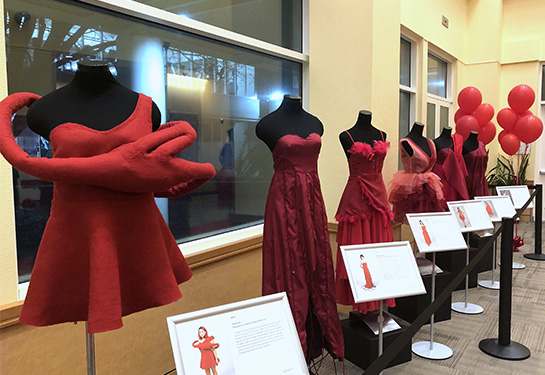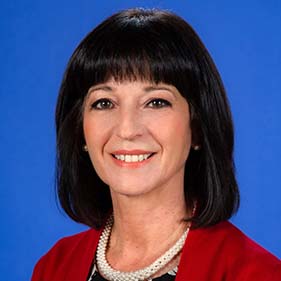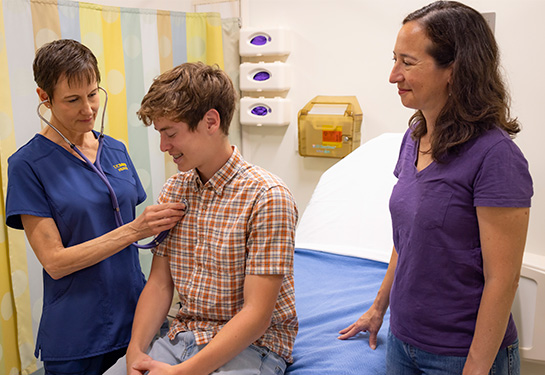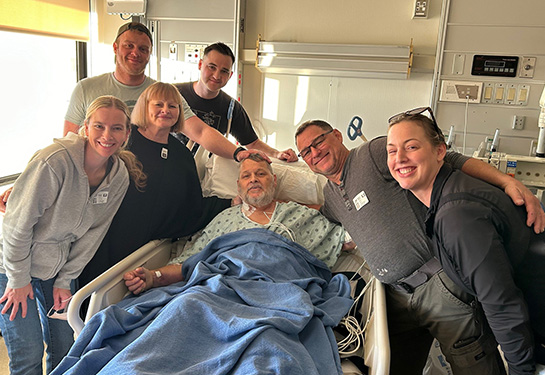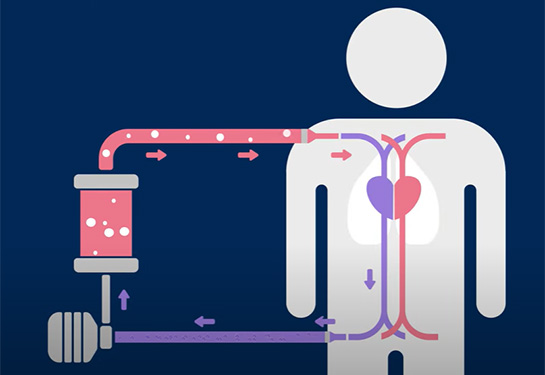Putting women’s heart health first: Cardiovascular medicine program celebrates 30 years
Anniversary gala features student-designed red dresses to promote heart health
For three decades, the UC Davis Women’s Cardiovascular Medicine Program has been raising awareness about the leading killer of women: heart disease.
The nationally recognized program celebrated its many accomplishments at a special 30th anniversary gala held on National Wear Red Day® last week.
“We created this program to address the health disparities for women through clinical care, research, outreach and education,” shared Amparo C. Villablanca, founder and director of the program and the Frances Lazda Endowed Chair in Women’s Cardiovascular Medicine. “However,” Villablanca added, “heart disease continues to kill more women than men, with many of the gains from the past decade reversed following the pandemic, with deaths unfortunately rising in younger women.”
We want every woman to put their heart health first. By building awareness of the importance of prevention among women of all ages and dispelling the myth that women are immune to heart disease, we can be even more successful in saving lives.” —Amparo C. Villablanca
She made her comments to over 100 people gathered at the UC Davis Activities and Recreation Center ballroom where most attendees were wearing red.
The gala drew campus leaders, including Chancellor Gary S. May and his wife LeShelle May, and UC Davis Health leaders such as Thomas Smith, chief of Cardiovascular Medicine. Community leaders, government representatives, supporters and patients also attended the celebration, which featured patient testimonials, a heart healthy meal and the 2024 red dress collection fashion show.
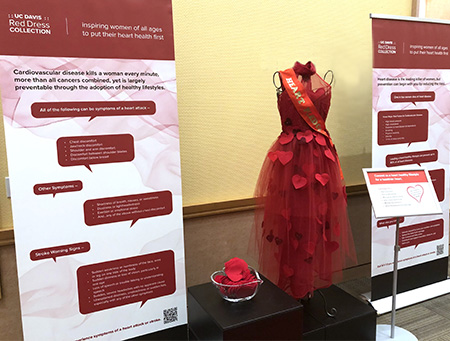
According to the American Heart Association, cardiovascular disease is the No. 1 cause of death among women in the United States. Cardiovascular disease kills more women than all forms of cancer combined. Yet only 44% of women recognize that cardiovascular disease is their greatest health threat.
“We want every woman to put their heart health first,” Villablanca said. “By building awareness of the importance of prevention among women of all ages and dispelling the myth that women are immune to heart disease, we can be even more successful in saving lives.”
A pioneer in women’s cardiovascular care
Established in 1994, the UC Davis Women's Cardiovascular Medicine Program was the first of its kind in the nation dedicated to female-focused heart disease care, research, education and community outreach.
The program offers personalized, integrated and women-centered care ranging from prevention to advanced treatments. It provides health equity-focused and guidelines-directed care in a specialty clinic for cardiac conditions that are unique to women or more often occur in women. These include:
- Spontaneous coronary artery dissection
- Heart failure with preserved ejection fraction and Takotsubo’s (stress) cardiomyopathy
- Angina syndromes with non-obstructed coronary arteries and Prinzmetal’s angina
- Peripartum cardiomyopathy
- Cardiovascular risk from pregnancy associated gestational hypertension, diabetes and pre-eclampsia
- Arrhythmias, such as atrial fibrillation
- Valvular heart disease, including mitral valve prolapses
- Dysautonomias, including POTS syndrome
Villablanca has led the program since its inception. She strives to enhance awareness of the importance of women's heart health among patients, health care providers and policymakers.
Some of the program’s achievements include:
- Recognition for distinction by California Gov. Pete Wilson
- Designation as a model women’s heart program by the Department of Health and Human Services
- Establishing the Women’s Center for Health at UC Davis, and its leadership and fellowship training program
- A collaboration with the California Department of Public Health to draft California’s Master Plan for Stroke Prevention
- Founding the Center for Women’s Cardiovascular and Brain Health
“For the last 30 years, Amparo has dedicated her life to caring for her patients and ensuring their best outcomes,” said Jessica Nunez de Ybarra, a UC Davis School of Medicine alumna and public health medical officer with the California Department of Public Health. “She is a pioneer in medicine, who took the torch and shined a light on the importance of women's heart health – not just by talking about it, but by living it.”
The red dress collection
In 2010, the UC Davis Women’s Cardiovascular Medicine Program entered a unique partnership with the UC Davis Department of Design to help educate Northern California women, especially younger women, about heart disease.
The focus of the awareness campaign is the UC Davis Red Dress Collection, an initiative in which fashion design students create a collection of red dresses that bear an educational message and reflect the designer’s inspiration for using design in social consciousness to spread the message that heart disease is the leading cause of death among women. Each dress represents the student’s own design aesthetics and personality, while encouraging heart-healthy lifestyles.
Some 100 dresses have been created over the years. The newest designs were unveiled at the recent gala.
“Working together, design and medicine can be powerful forces fighting the number one killer of women in the nation,” said Adele Zhang, a UC Davis fashion design instructor, mentor for the red dress initiative and longtime supporter of the women’s cardiovascular program.
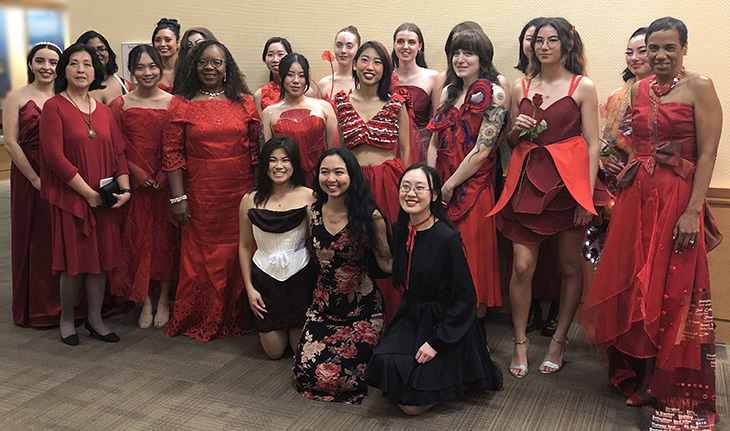
Congressional proclamation
The highlight of the gala came when Aaron Jones, an aide to Rep. Doris Matsui read a proclamation that the congresswoman presented on the floor of the U.S. House of Representatives earlier in the day.
The proclamation honors the program for its national leadership on one of the most critical health issues of our time, providing care to women with cardiovascular conditions and training the next generation of health care professionals. Matsui then entered the program into the Congressional Record.
“Looking to the future, we must continue to conduct gender-specific research and offer dedicated care to help fill knowledge gaps so that women can benefit with longer and healthier lives,” Villablanca said.
More information on the UC Davis Women’s Cardiovascular Medicine Program can be found on the program's website. The program’s research fund accepts donations on the online giving page.

